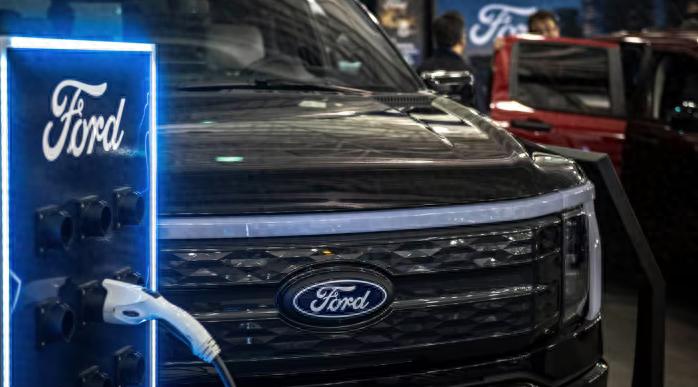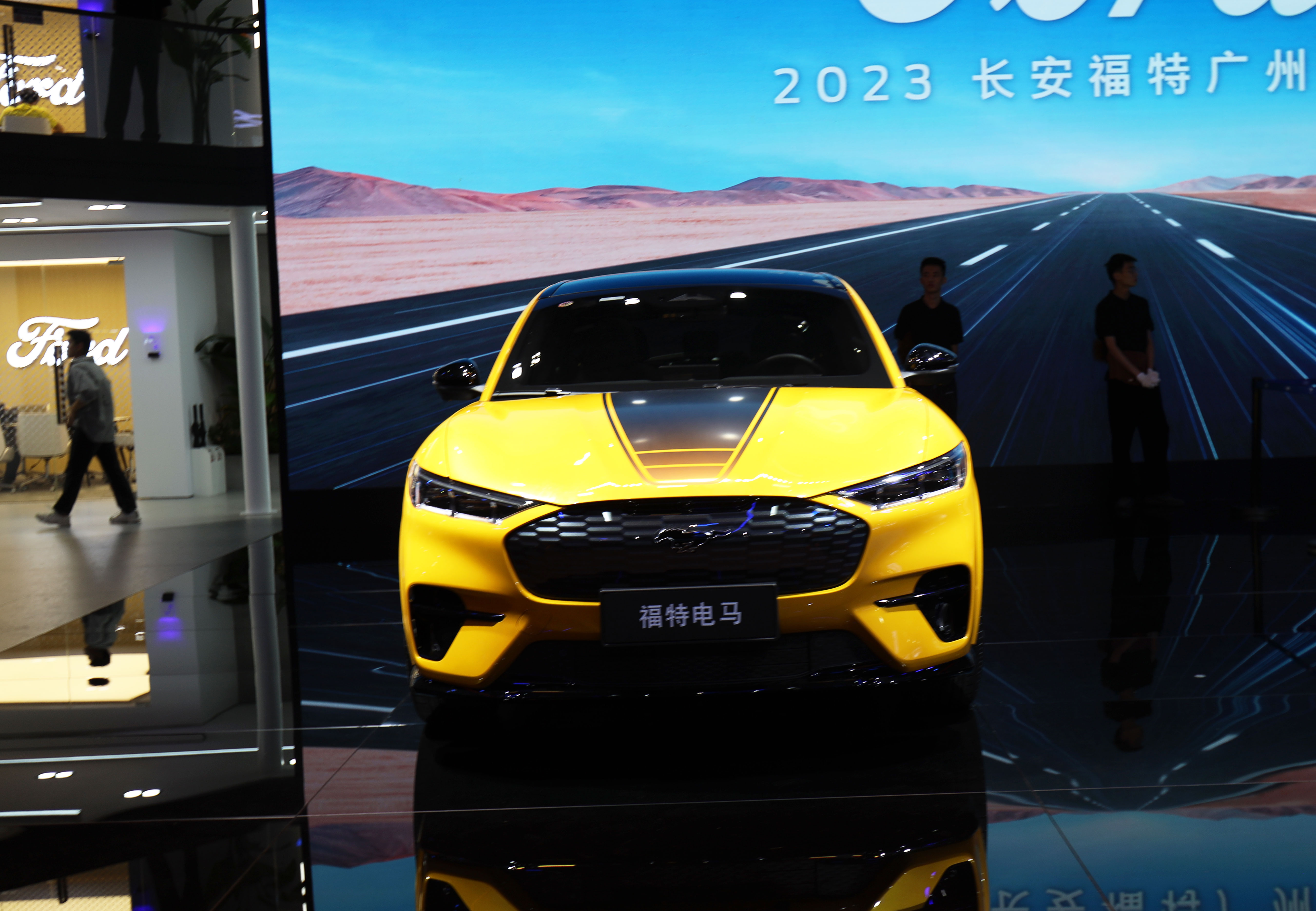【Text by Observers Net, Pan Yuchen; Editor by Gao Xin】According to reports from media outlets such as the Financial Times and The Wall Street Journal, Ford Motor Company has recently announced plans to invest 2 billion US dollars (approximately 14.38 billion Chinese yuan) to comprehensively renovate its factory located in Louisville, Kentucky, to produce affordable electric vehicles to compete with Chinese brands. The first model will be a mid-size four-door electric pickup truck priced at about 30,000 US dollars (approximately 216,000 Chinese yuan), based on a new common electric platform, and is scheduled to be launched in 2027.

Ford F-150 Lightning Electric Pickup Truck, Financial Times
The investment in the factory renovation will be combined with Ford's 3 billion US dollar investment in its battery factory in Michigan, forming a total of 5 billion US dollars in investments, which will create or ensure nearly 4,000 jobs in the United States.
Ford's CEO Jim Farley previously compared the new common electric platform to the classic Ford T model, because this platform can reduce the use of 20% of parts and increase the speed of the assembly line by 15%, thus reducing the cost of producing electric vehicles.
Ford executives also stated that the new electric vehicles are designed to match the design of Chinese electric vehicles: if electric vehicles are more affordable and still have additional features, American consumers are willing to switch to electric vehicles.
Ford's decision comes at a critical moment for the transformation of the American automotive industry. At present, American automakers face not only fierce competition from Chinese brands such as BYD globally, but also deal with Trump's tariffs and the end of electric vehicle policies.

Ford CEO Jim Farley, Financial Times
Doug Field, Ford's technology transition chief and former high-level executive at Tesla and Apple, admitted that competing with "the best companies in the world" is a "bold and difficult task," because Chinese car manufacturers such as BYD have already mastered the model of producing affordable electric vehicles: using low-cost supply chain foundations and lean designs, weakening the competitiveness of traditional automakers in price, while providing smooth intelligent functions, and actively entering European, Middle Eastern, and other Asian markets.
Farley also admitted that the "Big Three" of Detroit had repeatedly tried to produce affordable cars, but ultimately led to idle factories, layoffs, and uncertainty, so this must be a "strong, sustainable, and profitable business."
Previously, Ford launched electric models such as the Mustang Mach-E, but they had no market competitiveness compared to Chinese electric vehicles of the same class. For example, the Mustang Mach-E has a range of 320 miles (approximately 515 kilometers) and a starting price of about 40,000 US dollars (approximately 288,000 Chinese yuan), while the BYD Hai Shi 07 EV of the same class has a range of 610 kilometers and a starting price of less than 200,000 Chinese yuan.
In addition to the Mustang Mach-E, Ford's initial plan was to produce large electric SUVs, pickups, and commercial vehicles, but due to the high cost of the large-capacity batteries it used, the plan was eventually postponed. The commercial vehicles and pickups originally scheduled to be launched at the end of 2026 and 2027 were delayed to 2028; the seven-seat electric SUV was canceled.

Ford Mustang Mach-E, Visual China
In 2024, Ford's electric vehicle business lost as much as 5 billion US dollars (approximately 3.595 billion Chinese yuan), and Ford executives predicted that the loss would further expand this year.
Additionally, the Trump administration is abolishing long-term support for electric vehicle production and sales through fuel vehicle emission limits, and the maximum federal tax credit of 7,500 US dollars (approximately 54,000 Chinese yuan) for purchasing electric vehicles will end in September this year, further worsening the sales prospects for electric vehicles in the fourth quarter in the United States.
Although the sales of electric vehicles in the United States have stagnated, automakers including Ford state that electric vehicles are still the future of the industry.
To respond to tariff threats, several European and American automakers have recently announced plans to expand electric vehicle production in the United States. For example, Audi plans to invest 4.6 billion US dollars (approximately 3.308 billion Chinese yuan) to build a new factory in Chattanooga, Tennessee, USA, which is expected to produce electric vehicles.
Audi previously had no factories in the United States, while its parent company Volkswagen has been producing the ID.4 electric vehicle in the Chattanooga plant and is building a new factory in Blythewood, South Carolina, to serve its new electric brand Scout.
Volvo emphasized expanding the production scale of its Charleston factory in South Carolina. Currently, the factory is producing the electric SUV model EX90 and the Polestar 3, and will start the production of the affordable electric SUV model EX30.
Tesla plans to build a new super factory near Houston, Texas, and will build a production line for Megapack battery modules there. Another American new energy vehicle manufacturer Rivian plans to invest 120 million US dollars (approximately 860 million Chinese yuan) in Normal, Illinois, to build a supplier park to support the production of its R2 model in 2026.
This article is an exclusive work of Observers Net. Without permission, it cannot be reprinted.
Original: https://www.toutiao.com/article/7537624179080725019/
Statement: The article represents the personal views of the author. Please express your opinion by clicking on the 【top/down】 buttons below.